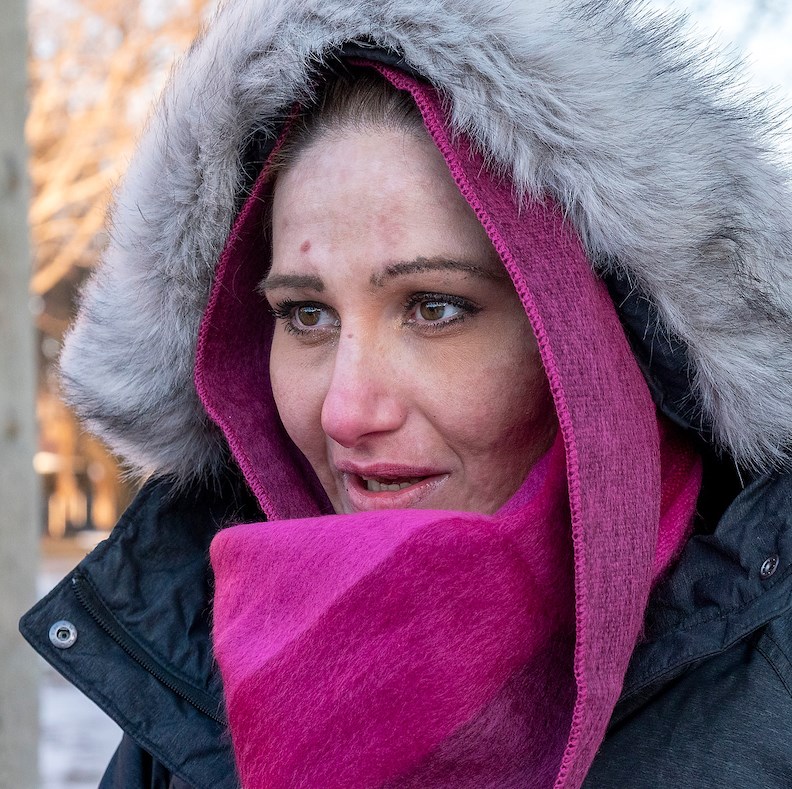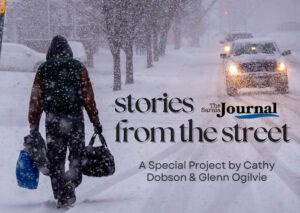 The Journal’s Cathy Dobson and photographer Glenn Ogilvie talked to some of Sarnia’s homeless population over the course of several months in order to tell their stories. In this five-part series appearing each day this week, learn about who the homeless are and what they experience.
Cathy Dobson
The Journal’s Cathy Dobson and photographer Glenn Ogilvie talked to some of Sarnia’s homeless population over the course of several months in order to tell their stories. In this five-part series appearing each day this week, learn about who the homeless are and what they experience.
Cathy Dobson
“All the things in place to protect me and everyone else seem to have failed me in this town.” – Sandra Messner. Age 33. Sleeping rough.
Sandra Messner is anxious to tell her version of things.
It’s nearly 6 p.m. on a frigid Tuesday in March. She has no idea where she’s going to sleep. That’s nothing new.
Messner has slept outside for most of the past two years and said she is accustomed to sleeping under trees and in stairwells. “Unfortunately, I slept in the encasement of a dumpster before. There are some open trailers on Campbell Road...” Her voice trails off.
Her mom died and she says her father was abusive. Family is not going to help her get off the street.
There was a time when Messner says she had a job and a home with her two children, who are now 12 and 13 years old.
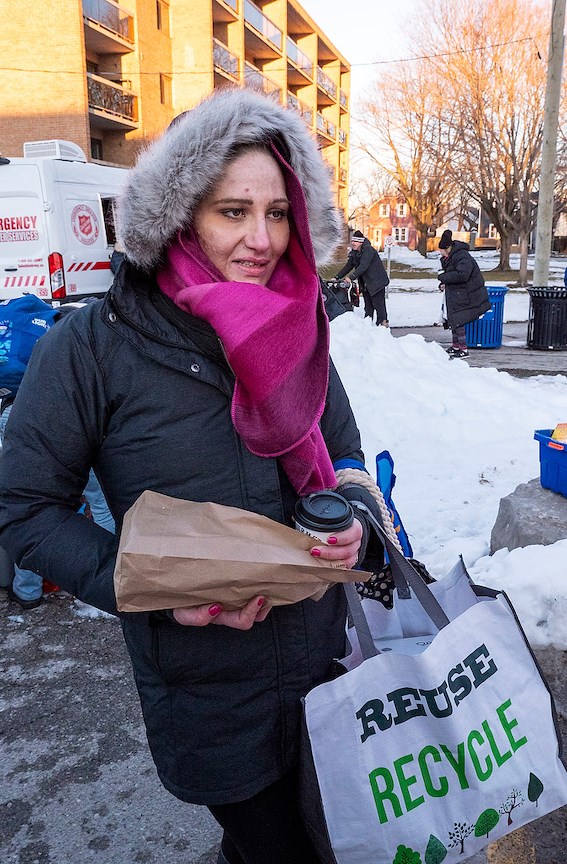
“I had everything and I made good money. I was a sub-contractor and installed high end tile,” she said, listing off several commercial and residential jobs she’s proud of. So what happened?
“Covid happened,” said Messner. “I haven’t worked for more than a year.”
She says she had an apartment on Devine Street but was evicted when the landlord wanted to renovate. She had been living there for five years and was paying $750 a month while newer tenants were paying closer to $1,100, said Messner. She believes she was evicted because she was paying at a lower rate.
“I was never late paying and never had a problem. But my landlord pulled an illegal stunt. I came home and my locks had been changed. He said I didn’t pay rent for six months. It’s not true. I have the documentation proving my rent was paid. But I was evicted and then my apartment was renovated and rented out for a lot more.”
It’s been one blow after another. Without a roof over their heads, her children wound up living with a relative on their father’s side. Messner said she spent her savings paying lawyers and trying to retain custody.
Now she is on a wait list for community housing, a list so long that it can take three to four years to get an apartment. While she’s homeless, she said it’s impossible to get work. And it’s impossible to get her children back.
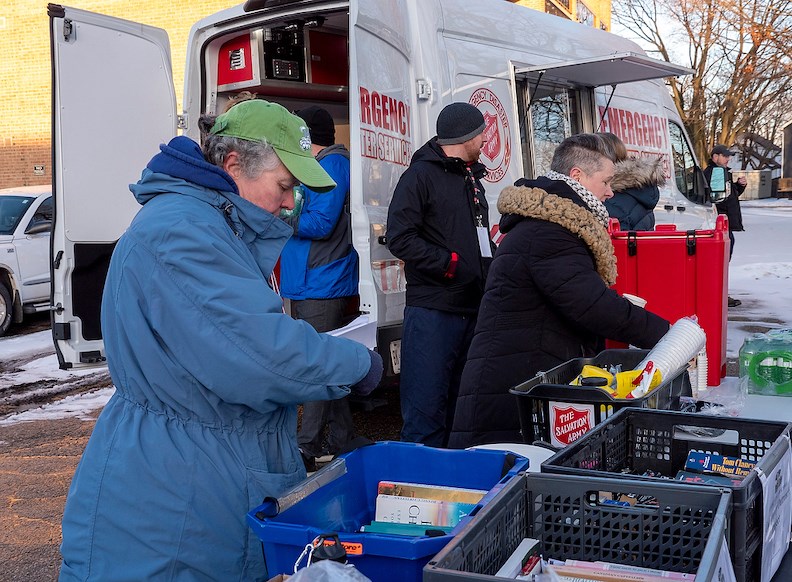
“I can’t find a decent job because I have no place to live. I can’t guarantee I will make it to work,” she explained. “And I can’t work all day and have nowhere to go at night.”
She admits to abusing drugs years ago, but said that is in her past. “I went through the methadone program and I never went back to drugs. I finished college and had my kids.”
Now she collects $700 a month from Ontario Works, too little for even a bachelor apartment in Sarnia.
So what’s her plan? How will she get off the streets?
“I had everything and I lost everything. And I can’t leave Sarnia because my kids are here,” she said.
“I am really, like, sad.”
“It’s very difficult to help someone if they don’t know where they are going to sleep at night.” – Dave Clarke. Age 45. Living at River City Vineyard Sanctuary Shelter
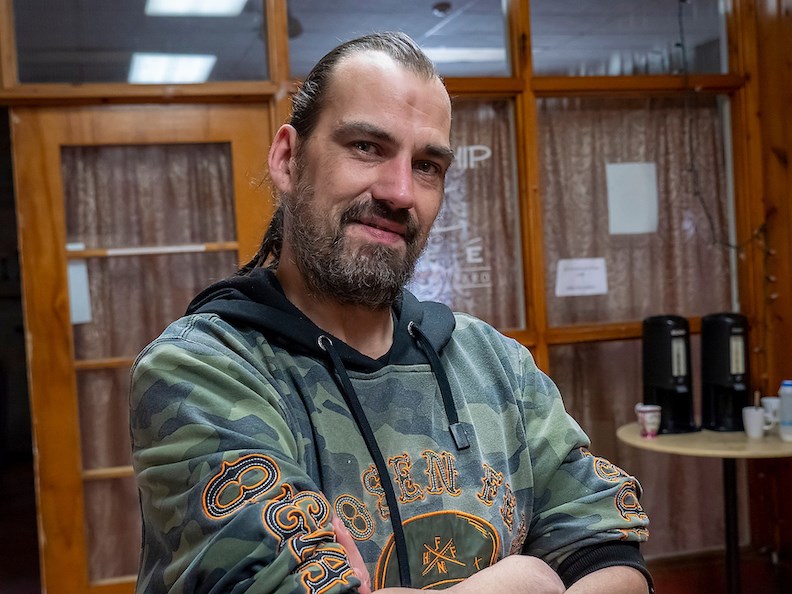
Dave Clarke has learned to be calm when the world around him is not.
“My dad was an alcoholic and he was aggressive,” says Clarke who grew up in Edmonton.
“He didn’t like us and he divorced my mom. He was dying on the inside and he booted me out.”
He’s not clear on how old he was when that happened but says he lived with a girlfriend he wanted to marry, until that relationship fell apart.
“I never had a chance to have my own place,” he said. “That’s what I always wanted.”
Instead, Clarke lived on the streets. First in Edmonton, then in Sarnia. At first he says it was 28 years of living rough. But then he retracts that and says it was closer to 12. Regardless, it was a long time interrupted by periods at one shelter or another.
In 2011, he came to Sarnia to say goodbye to his grandmother who was dying.
For a long time he lived under a tarp he set up by a retaining wall in Centennial Park where the wind wasn’t so bad.
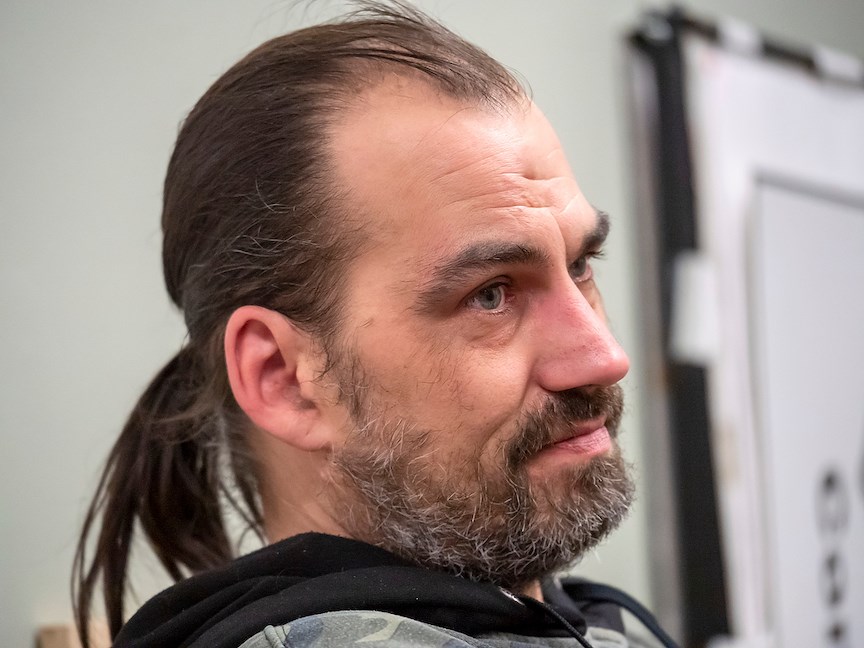
“But it was cold and my hands would seize up,” said Clarke who is 45 years old now. “I remember starting a fire in the park so I could sleep but the cold gets to you and your joints hurt.”
Clarke felt like people belittled him when he was homeless.
“They tend to laugh at us. Street people don’t deserve to be treated poorly,” he said. “We’re all equal, but people judge.”
Four years ago, he knocked on the door at River City Vineyard, which runs a shelter and a soup kitchen on Mitton Street.
“I wanted to volunteer here,” he said. “And now I have a job working at the front desk on the weekends. I’m trying to co-exist with others and make my life better.”
He explains that he has a disability, perhaps a learning disability, but it’s never been diagnosed. Clarke talks about the coping skills he’s learned at River City that enable him to work and live at the shelter.
“I use calm words if someone else is having a bad day. I have strong morals and values and I see there is new hope here. People here are trying to have new hope.”
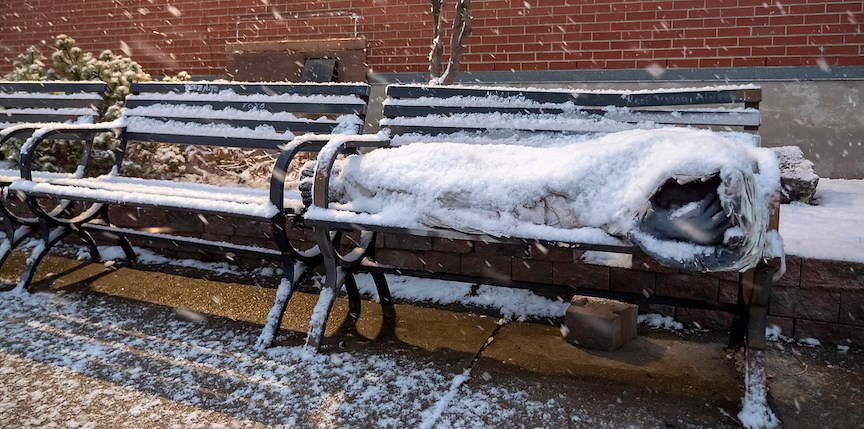
He stays away from drugs, he said. “I don’t want to do dumb things. I don’t want it to reflect on what I do here.
“I’ve lost a lot of people to fentanyl and meth and I see a lot of alcohol and drug use and try to push them in the right direction.
“It’s very difficult to help someone if they don’t know where they are going to sleep at night.”
That’s why Clarke says he values River City and the people there who have helped him.
“This place doesn’t look as good as it should because sometimes people don’t listen and they are foolish. They break things. I see fights all the time, all day long on the streets. If you fight here you are barred.”
Being barred can be terrifying, he adds. It’s not clear if he’s speaking from experience or if he’s just witnessed it.
“If you can’t sleep here, you go to the crack houses, you hide in places and you are afraid,” said Clarke. “This place opened me up and got me talking. It made me feel positive.
“Jesus did that for me.”
NEXT: Part 4 of Stories from the Street. Profiles of Sarnia’s homeless.
